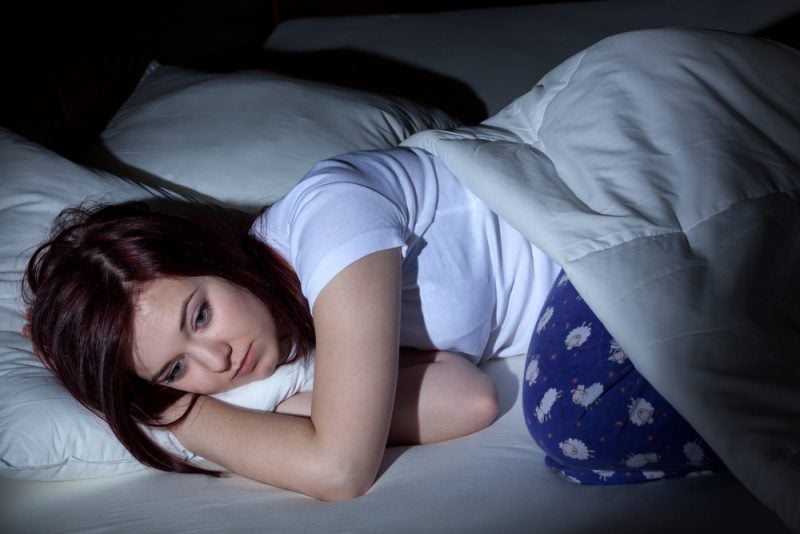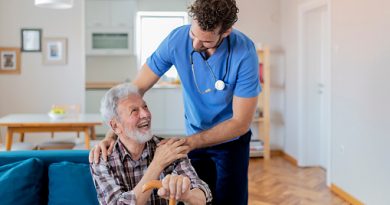Can’t Sleep? 8 Things to Try Instead of Sleeping Pills
If you occasionally have a hard time falling or staying asleep, consider yourself normal. 64% of people regularly struggle to fall asleep or stay asleep, and that takes a significant toll on their lives and the lives of people around them.
Lack of sleep can cause serious issues, including:
- Lack of focus
- Hard to control emotions
- Struggles with weight
- Health issues including the inability to fight off sickness
Most people can handle a few occasional sleepless nights, but more frequent sleep problems can lead to feelings of desperation and a willingness to try just about anything to get even a little sleep.
Prescription sleep aids can be useful, but there is usually a trade-off. The side effects you’ll subject yourself to with prescription sleep aids can be as harmful or worse than the problem you’re trying to solve.
Here are some common side effects caused by prescription sleep aids:
- Changes in appetite
- Constipation
- Diarrhea
- Dizziness
- Daytime Drowsiness
- Gas
- Headache
- Heartburn
- Lack of Focus
- Memory and Attention Issues
- Stomach pain
- Nightmares
Simple Lifestyle Changes Can Help You Get Back to Normal Sleep Patterns
Before resorting to prescription sleeping pills, it is always wise to try lifestyle and behavioral changes. Simple changes can often improve your sleep situation naturally.
Here are some simple lifestyle changes you can make to improve your body’s ability to fall asleep and stay asleep without taking prescription drugs.
Make Your Bedroom More Conducive For Sleep
A dark room is best for sleeping. So, be sure to turn off all the lights and cover any items like alarm clocks that have bright displays.
A quiet room is also preferable. If you live in a noisy location, you can try using a white noise generator to cover up traffic, siren, and other city sounds. And finally, a cool room is better for sleeping than a warm or hot room. Use air conditioning or a fan to keep cool.
No TV, Tablet or Phone for an hour before bed
Melatonin is a hormone produced by our bodies that makes us feel sleepy. Melatonin is produced each evening as the sky darkens. It increases during the night until morning when daylight stops its production.
The problem with TV, phone, and tablet displays is that they produce bright light, and that can inhibit melatonin production. So it’s no wonder why using those devices in the evening would interrupt sleep.
Rather than watching TV or spending time on your laptop, tablet, or phone, try reading a book or talking with a friend or partner.
Get on a Regular Schedule
Have you ever heard of the “circadian rhythm”? It’s our body’s built-in clock, and it’s very reliable! Our circadian rhythm tells us when it’s time to sleep, time to wake up, and it even regulates our body temperature and menstrual cycles.
We need to take care not to disrupt these cycles, but we often do. For example, if we don’t go to bed at the same time each night, we could be causing problems for ourselves.
An excellent lifestyle change you can make is going to bed and waking up at the same time each day. This will help you to avoid disrupting your natural circadian rhythm and help you to get better sleep.
Avoid Working in Bed
A great rule, but one that’s hard to follow, is no TV in the bedroom. That goes for laptops and tablets too!
Try to reserve the bedroom for sleeping and sex.
Avoid Late-Night Eating and Drinking
Eating or drinking too close to bedtime is a bad idea. Consuming food or alcohol will almost definitely trigger a surge in blood sugar, and that means you’re going to become more alert. Heightened alertness does not help promote a restful feeling, which is what you should be trying to achieve as you approach bedtime.
Drinking a lot of water before you go to bed can also result in waking to urinate, and falling back to sleep after that is often challenging. So, if you’re thirsty at bedtime, do yourself a favor and don’t drink very much.
Workout Daily
A daily workout can promote restful sleep. Exercise is also refreshing and energizing, so plan your workouts early in the day as evening workouts might get you too wound up to sleep.
Try Daily Meditation
Anxiety and depression are responsible for many sleep problems. Meditation calms your mind and body, preparing you for sleep. It also reduces your heart rate, lowers your blood pressure, and increases the production of Melatonin, which, as discussed earlier, is essential to falling asleep.
Try a Natural Sleep Supplement
There are many supplements out there that help promote restful sleep. Melatonin is the most popular one, and it can be very effective. It does, however, affect some people negatively with side effects ranging from nightmares to morning hangovers. So, please test it out in small amounts until you know how it will affect you.
Quick Sleep Tips Summary
- 64% of people regularly struggle to fall asleep or stay asleep
- Lack of sleep can cause a lot of issues, including:
-
- Lack of focus
- Hard to control emotions
- Struggles with weight
- Health issues including the inability to fight off sickness
- The side effects of prescription sleep drugs can be as harmful or worse than the problem you’re trying to solve.
- Try these lifestyle changes before using prescription sleep medications
- No TV, Tablet or Phone for an hour before bed
- Make Your Bedroom More Conducive For Sleep
- Avoid Working in Bed
- Avoid Late-Night Eating and Drinking
- Get Some Exercise
- Try Meditation
- Get on a Regular Schedule
- Try a Natural Sleep Aid




